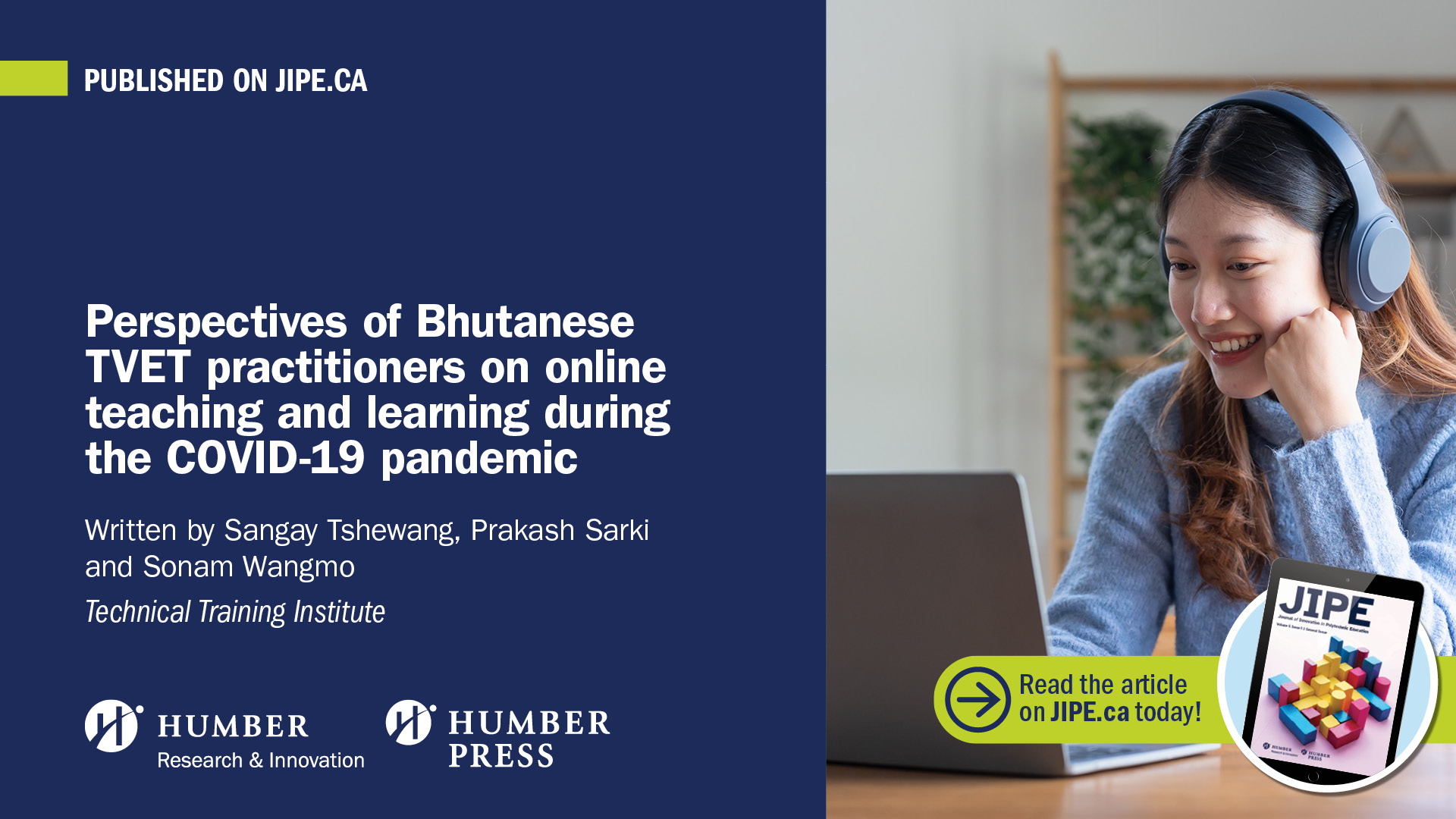Journal of Innovation in Polytechnic Education (JIPE) is pleased to announce the publication of Perspectives of Bhutanese TVET practitioners on online teaching and learning during the COVID-19 pandemic by Sangay Tshewang, Prakash Sarki and Sonam Wangmo.
Read the article on JIPE.ca.
About JIPE
Journal of Innovation in Polytechnic Education (JIPE) is an online, open-access journal for peer-reviewed papers that mobilize knowledge and insights generated by the global polytechnic community. JIPE is electronically published by Humber Press at Humber College’s Office of Research & Innovation. JIPE is accepting submissions on a rolling basis. To learn more about JIPE, please visit jipe.ca or email humberpress@humber.ca
Abstract:
Due to the shutdown of schools, universities, and Technical and Vocational Education and Training (TVET) programs during the pandemic, practically all students experienced educational challenges for an entire year. The education system was conducted remotely via the internet, TV, and mobile phones; however, TVET education, which is learned outside of the typical classroom, suffered due to internet problems, lack of electricity supply, lack of availability of technology, unprepared teachers, and challenges in balancing studies and household responsibilities for female students. It is tough and challenging to adapt and implement this educational system under such pandemic conditions, particularly for low-income and vulnerable youths. Since TVET strongly emphasizes practical skills and workplace readiness, remote learning is complex. TVET is a practical-based education that can be successfully learned through performing in classrooms, workshops, or laboratories, along with the practical experience of training or attachment at the workplace. In another setting, practical instruction for some professions could be realistically simulated, for example, through augmented reality experiences. Still, again, the cost of purchasing sophisticated and complex software that can run such simulations can be a barrier for most students. The biggest challenge is adjusting to distance learning, which mainly relies on learning by experience.
This study aimed to learn more about how Bhutanese teachers and students in a technical training institute perceived and experienced online classrooms during the pandemic. In response to the present pandemic, the entire educational system changed and modified itself to include the delivery of online classes. This survey describes Technical Training Institute teachers’ and students’ perceptions and concerns about the emergency pivot online instruction.
The sample consisted of 10 trainers and 119 trainees from Technical Training Institute Samthang in Wangdue Phodrang. An online survey method (Google Forms) was used for data collection. While most participants (69%) thought online education saved time, the study also uncovered significant challenges related to the validity of the assessment system. The findings show that only 27 per cent believed online teaching is effective. It is also reported that this negative impression of online education can be attributed to the low level of knowledge transfer, lack of structure in lessons, challenges to clarify doubts during the class, and poorly designed learning materials. Significantly, most participants believed that technical issues majorly disrupt the flow and pace of online teaching.

